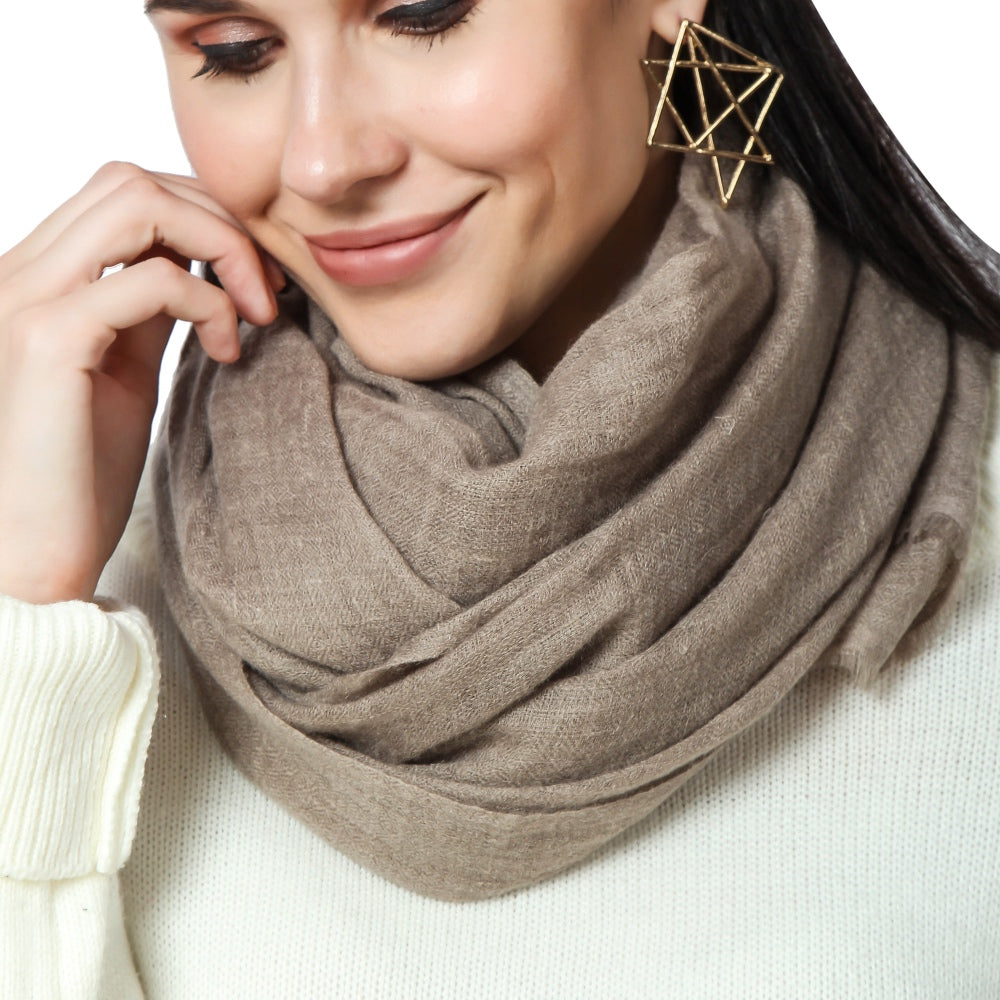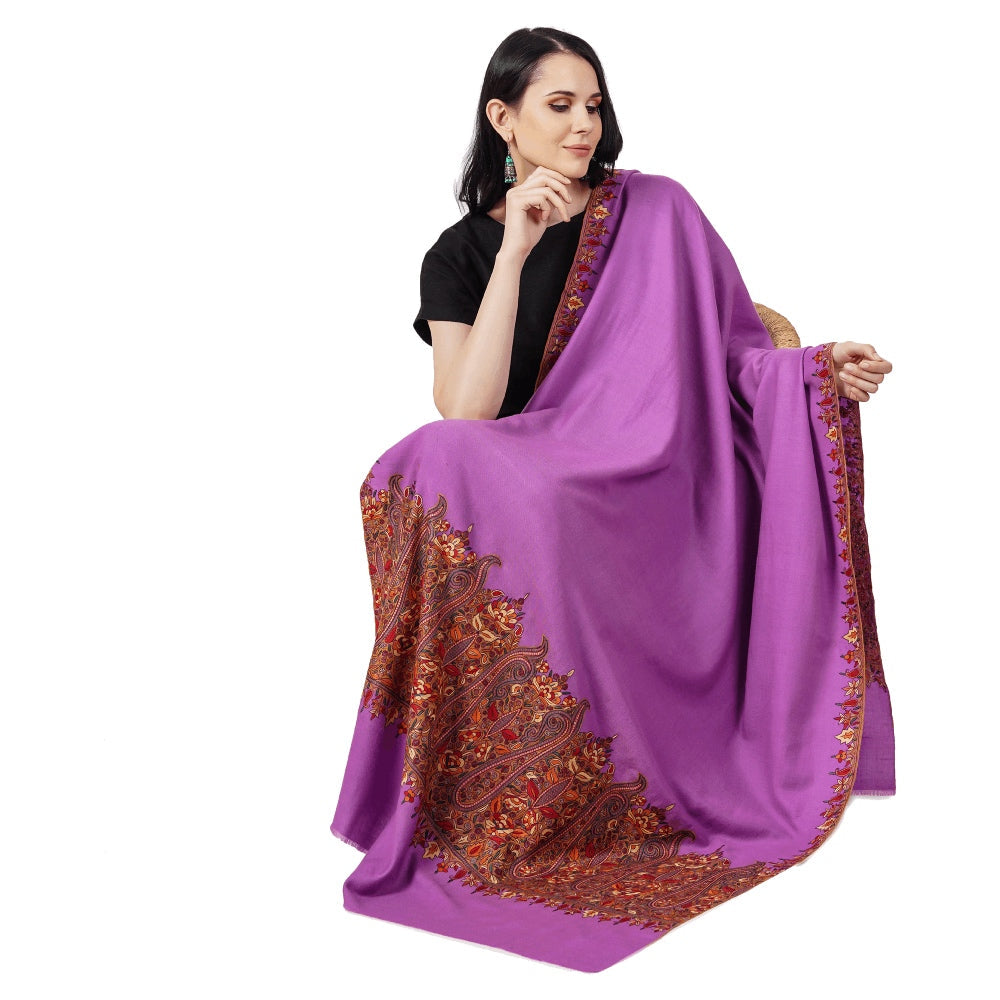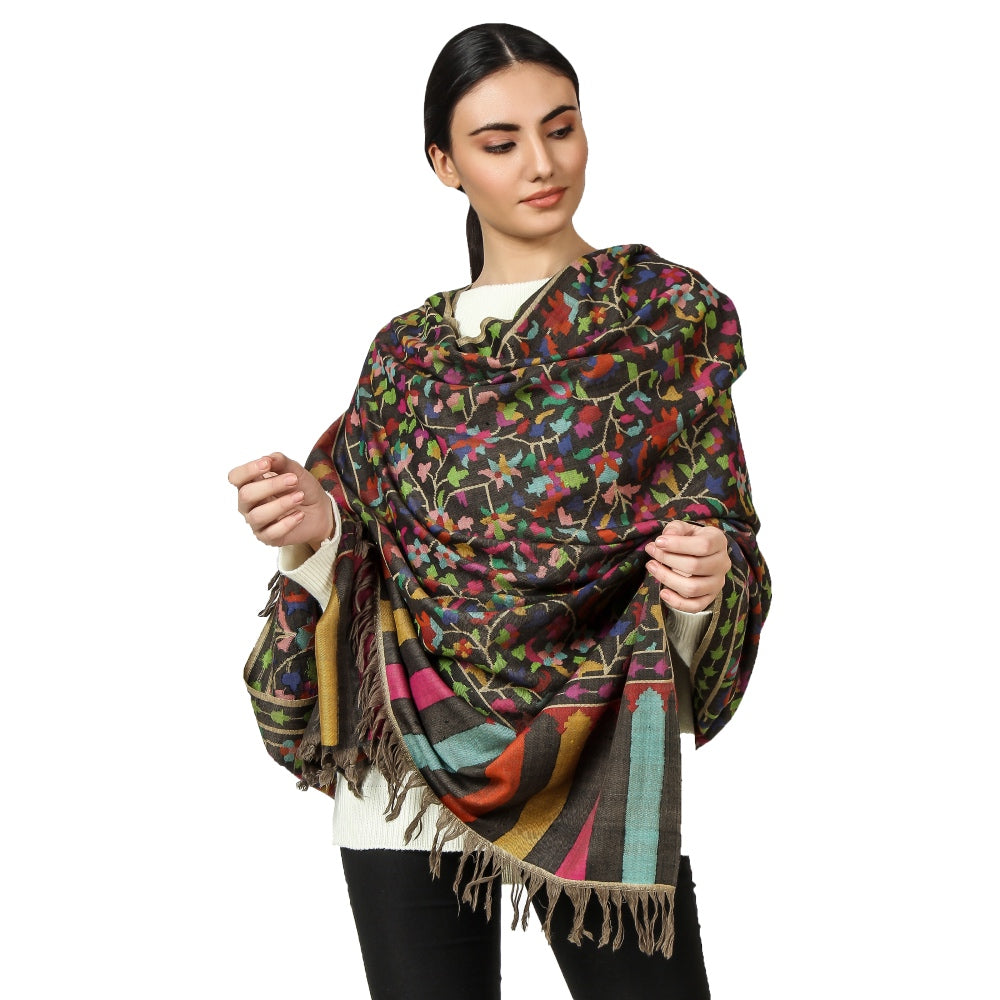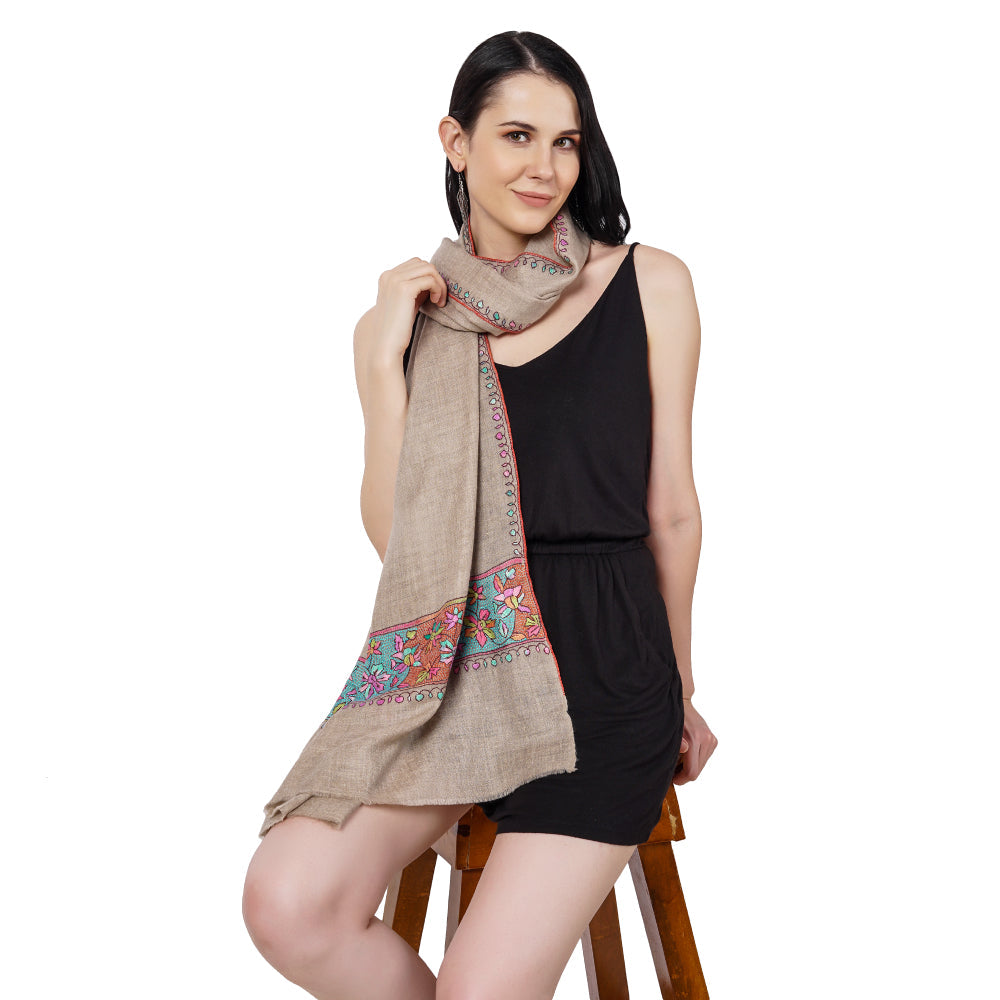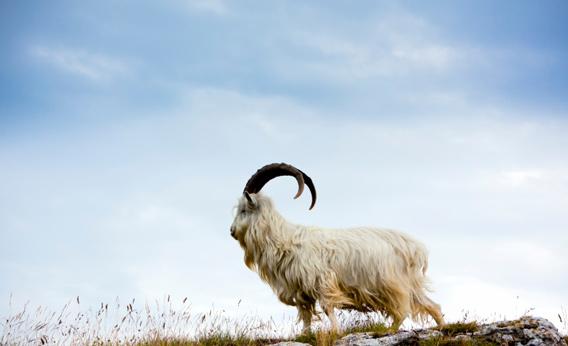
Is Pashmina Vegan? Understanding the Ethics of Luxury Cashmere
Share
In the realm of luxury textiles, Pashmina has carved a niche for itself as one of the most exquisite and sought-after materials in the world. Revered for its unparalleled softness, warmth, and delicate craftsmanship, Pashmina has become synonymous with sophistication and timeless elegance. However, as the demand for ethical and sustainable fashion grows, an important question has emerged: Is Pashmina vegan?
The answer, quite simply, is no. Pashmina is not vegan. To understand why, we must explore its origins, the production process, and the ethical considerations surrounding this remarkable textile.
What is Pashmina?
Pashmina is a type of fine cashmere derived from the undercoat of the Capra hircus goat, specifically the Changthangi or Pashmina goat, native to the Himalayan regions of Ladakh, India, and Nepal. The word "Pashmina" itself comes from the Persian word pashm, meaning "soft gold" or "wool."

Unlike regular wool or synthetic fibers, Pashmina is celebrated for its ultra-lightweight texture, luxurious softness, and remarkable warmth. Each fiber measures less than 14 microns in diameter, making it finer than human hair. These qualities make Pashmina scarves, shawls, and wraps highly desirable in the luxury market.
Why Pashmina is Not Vegan
The term "vegan" signifies that a product is free from animal-derived materials and has not involved animals in its production process. Here’s why Pashmina doesn't meet these criteria:
-
Animal-Derived Material:
Pashmina fibers are collected from the soft undercoat of the Pashmina goat. These goats grow this undercoat as protection against the harsh winters of the Himalayan mountains. -
Animal Involvement in Production:
The process of obtaining Pashmina involves combing the goats to remove their undercoat during their natural molting season in spring. While this process does not harm the animals if done ethically, it directly involves the use of animals, which makes Pashmina non-vegan. -
Dependent on Livestock:
The livelihoods of Pashmina producers depend on maintaining herds of goats, which ties the industry intrinsically to animal husbandry. Ethical practices may ensure humane treatment, but this reliance disqualifies Pashmina from being classified as vegan.

Is Pashmina Ethical?
Though Pashmina is not vegan, it can align with ethical fashion principles depending on how it is sourced and produced. Here’s what to consider when evaluating the ethical aspect of Pashmina:
-
Sustainable Practices:
The Changthangi goats are naturally adapted to their environment, and their grazing habits have historically supported local ecosystems without causing degradation when managed responsibly. -
Artisan Craftsmanship:
Pashmina production is deeply rooted in the cultural heritage of Kashmiri artisans. The weaving process, often done by hand, supports local communities and preserves centuries-old traditions. By purchasing authentic Pashmina, consumers contribute to the livelihoods of these artisans. -
Animal Welfare:
Ethical producers ensure that the goats are treated with care and respect. The combing process to collect wool is painless, and the goats are not harmed in the production of Pashmina. However, verifying these practices is essential to avoid supporting unethical operations.

Vegan Alternatives to Pashmina
For those committed to a vegan lifestyle, alternatives to Pashmina are available that emulate its softness and warmth without involving animals:
-
Bamboo Cashmere:
Made from bamboo fibers, this fabric mimics the lightweight and breathable qualities of Pashmina while being entirely plant-based. -
Modal and Tencel:
Derived from sustainably sourced wood pulp, these fabrics offer a smooth texture and luxurious drape. -
Organic Cotton Blends:
Cotton, when blended with other sustainable fibers, can produce scarves and shawls that are soft, durable, and cruelty-free. -
Recycled Polyester or Acrylic:
While synthetic, recycled materials reduce waste and can provide warmth and softness comparable to natural fibers.
How to Make an Ethical Choice
Whether you are vegan or simply seeking ethical fashion, making informed choices is essential. Here are some tips:
-
Look for Certification:
Seek authentic Pashmina certified by reputable organizations that verify ethical sourcing and animal welfare practices. -
Research Brands:
Support brands that are transparent about their production processes and prioritize sustainability and humane practices. -
Explore Vegan Options:
If veganism is a core part of your lifestyle, explore high-quality plant-based alternatives that match your values.
The Verdict
While Pashmina is not vegan, its allure as a luxury textile remains undeniable. For those who appreciate its unmatched qualities and are willing to navigate its ethical considerations, Pashmina can represent a sustainable and culturally rich addition to their wardrobe. On the other hand, for individuals committed to a completely animal-free lifestyle, innovative vegan alternatives provide beautiful and cruelty-free options.
Ultimately, the choice between Pashmina and its vegan counterparts reflects a balance between personal values, aesthetic preferences, and ethical priorities. Whatever your decision, understanding the origins and impact of your purchases is the first step toward a more conscious and compassionate fashion journey.

